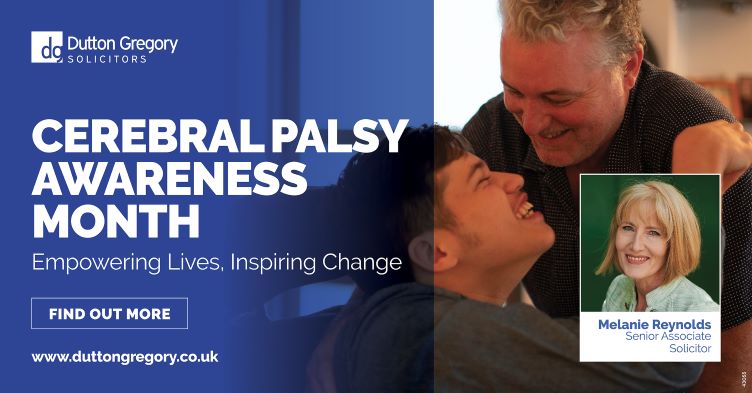Every March, the world observes Cerebral Palsy Awareness Month. This is a time dedicated to raising awareness of the neurological condition that affects movement, muscle tone and motor skills, advocating for those living with it and celebrating their achievements, all in an effort to welcome them into a more inclusive society.
However, amidst the discussions about awareness and support, it's crucial to acknowledge the unfortunate reality that some cases of cerebral palsy are linked to medical negligence.
Whilst Cerebral Palsy can occur due to genetics, prenatal issues, birth complications, or even postnatal events, there are many instances when it has occurred in newborn babies due to medical negligence during pregnancy, labour, or delivery, a fact that legal specialist, Melanie Reynolds knows all too well.
“I have seen many cases when parents need extra help and support to care for their child who is growing up with varying degrees to Cerebral Palsy through no fault of their own, and there are a number of reasons that often need to be examined when ascertaining a potential cause.”
Melanie goes on to list the main reasons as
- Delayed or improper prenatal care: When critical issues that could contribute to cerebral palsy are overlooked, eg failure to identify and address infections or maternal health conditions that increased the risk of complications during pregnancy and childbirth.
- Failure to monitor fetal distress: Failure to recognize and respond promptly to fetal distress during labour and delivery can result in oxygen deprivation, which is a common cause of cerebral palsy.
- Mismanagement of labour and delivery: Improper use of delivery instruments, such as forceps or vacuum extractors, inappropriate delivery techniques, and delays in emergency interventions such as caesarean sections that cause trauma to the baby's brain.
- Medication errors: Administration of incorrect medications or dosages during pregnancy or childbirth can have harmful effects on both the mother and the baby, potentially leading to conditions like cerebral palsy.
Families affected by Cerebral Palsy often face significant emotional, physical, and financial challenges. They may require ongoing medical care, therapies, and support services to help their loved ones lead fulfilling lives.
In cases of medical negligence, legal recourse should be available for parents in order to provide the support and resources they will need for lifelong care. Families can seek compensation to cover medical expenses, rehabilitation costs, lost wages, and other damages. Moreover, pursuing legal action can help raise awareness about the importance of patient safety and quality healthcare practices.
“I believe that Cerebral Palsy Awareness Month is not only a time to celebrate the resilience and achievements of individuals living with the condition,” says Melanie. “It also provides an opportunity to advocate for improved healthcare standards, prevention of medical negligence and highlights the support needed for families managing Cerebral Palsy in their lives.”








